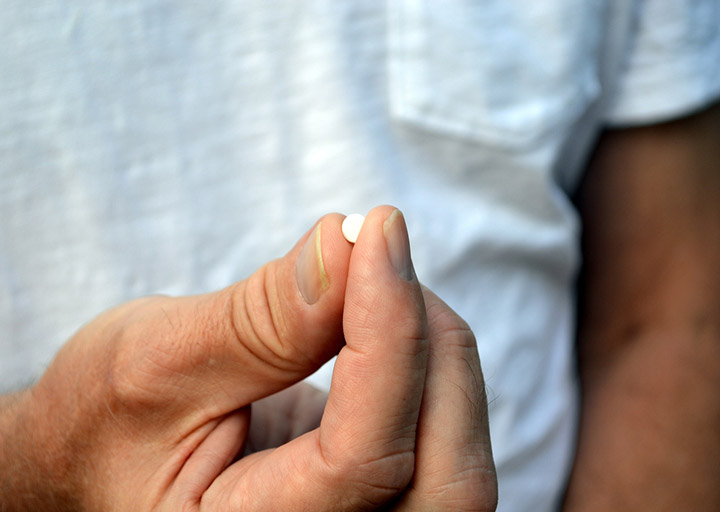If you’re one of the millions of people who struggle to fall asleep or stay asleep through the night, you know how frustrating it can be to wake up feeling groggy and unrefreshed. Lack of sleep affects your physical health, mental well-being, and productivity. Fortunately, there’s a natural solution that can help improve your sleep quality: melatonin.
In this article, we’ll explore the benefits of melatonin, how it works, and how you can incorporate it into your bedtime routine to say goodbye to restless nights and hello to better sleep. So, if you’re ready to catch some Z’s, keep reading to learn more about this sleep-inducing hormone.
What Is Melatonin?
Melatonin is a hormone that is produced by the brain. It helps regulate our circadian rhythm, also known as the sleep-wake cycle. Melatonin supplements can also be bought over the counter as sleep aids.
How Does Melatonin Work?
Melatonin hormones are released toward the end of the day. Melatonin production is related to sunlight levels; once it’s dark outside, melatonin starts to be produced. The hormone helps put the body in a state of relaxation that promotes sleep. Specifically, it binds to receptors in the suprachiasmatic nucleus (SCN), which is the body’s master clock that controls the sleep-wake cycle. When melatonin binds to these receptors, it signals to the SCN that it’s time to sleep.

How Long Does Melatonin Last?
Depending on factors like your body size, dosage, and the type of melatonin, it can remain in your system for anywhere between four to eight hours. It’s important to consult your doctor to determine how much melatonin you should be taking for your body type.
What Is the Half Life of Melatonin?
The half-life of melatonin can vary depending on factors such as age, gender, and individual metabolism. On average, the half-life of melatonin is approximately two to three hours. This means that after two or three hours, half of the melatonin you have taken will have been eliminated from your body. After five to seven half-lives, most of the melatonin will have been cleared from your body. By taking melatonin supplements 30-60 minutes before bedtime, your body has enough time to absorb and use it before it’s eliminated.
When Should You Take Melatonin?
Taking melatonin 30-60 minutes before bedtime is most effective. Taking it too early or too late can disrupt the sleep-wake cycle and make it harder to fall asleep.
What Is a Safe Melatonin Dosage?
Melatonin Dosage for Adults
The optimal dosage of melatonin varies depending on the individual and the reason for taking it. For most people, a safe dosage is 0.5mg – 5 mg. Some people may need higher doses (up to 10 mg) to achieve the desired effect.
It’s important to note that melatonin is a hormone and should be taken with caution. It’s always best to start with a lower dose and gradually increase as needed.
Melatonin Dosage for Kids
The optimal melatonin dosage for children depends on their age, weight, and health. In general, the American Academy of Sleep Medicine recommends the following melatonin dosages for children:
- Children aged 3 to 5: 0.5 milligrams (mg) to 1 mg
- Children aged 6 to 12: 1 mg to 3 mg
- Teenagers aged 13 to 18: 3 mg to 5 mg
It’s always best to consult with a pediatrician or healthcare provider before giving your child melatonin. It’s also important to only give melatonin to children who have trouble falling asleep or staying asleep, and not to use it as a substitute for healthy sleep habits.
Melatonin Safety: What Happens If You Take Too Much Melatonin?
It is possible to take too much melatonin. The main three symptoms are excessive sleepiness, vomiting, and trouble breathing.
It’s important to talk to your doctor before taking melatonin if you’re on any medications. It can interact with certain medications like blood thinners and antidepressants.

Is Melatonin Addictive?
Melatonin is not considered addictive in the traditional sense. It does not create a physical dependence on the substance, nor does it cause the intense cravings associated with other drugs or substances.
However, it is possible to become psychologically dependent on melatonin. Some people may come to rely on it as a sleep aid and feel unable to fall asleep without taking it. This is not a true addiction, but it can become a habit that is difficult to break.
How Does Melatonin Compare to Other Sleep Supplements?
In addition to melatonin, there are several other things you can take to help with sleep. We’ll summarize some of the options below.
Melatonin
Melatonin is a hormone produced naturally by the body to regulate sleep-wake cycles and helps to reset the body’s internal clock. It is generally considered safe but may cause side effects in some people. It can also be effective for people with insomnia or jet lag.
Sleeping Pills
Sleeping pills are a group of medications that are used to treat insomnia and other sleep disorders. They work by depressing the central nervous system to promote drowsiness and sleep.
While they may be more effective at inducing sleep in the short term, they carry a higher risk of side effects and dependency. They can cause drowsiness the next day, as well as other side effects such as headaches, dizziness, and dry mouth. Sleeping pills can be habit-forming and lead to dependence and withdrawal symptoms if used long-term.

Examples of prescription sleeping pills:
- Zolpidem (Ambien)
- Eszopiclone (Lunesta)
- Zaleplon (Sonata)
- Temazepam (Restoril)
- Triazolam (Halcion)
- Doxepin (Silenor)
Magnesium
Melatonin and magnesium are two natural supplements that are used to promote better sleep. Magnesium promotes relaxation and reduces anxiety, which can help to make falling asleep easier. It is a mineral that is involved in many bodily functions, including muscle and nerve function. It may be effective for people with insomnia or restless leg syndrome. Magnesium can be taken as a supplement or obtained through foods like nuts, whole grains, and leafy green vegetables. Like melatonin, it is generally considered safe but may cause side effects in some people.
Ashwagandha
Ashwagandha is an adaptogenic herb that has been used for centuries in Ayurvedic medicine to improve overall health and reduce stress. It works to reduce stress and lower cortisol levels, which can contribute to better sleep. It can be taken as a supplement or used as a powder in food or drink, and it may take several weeks of use to see an effect.
Valerian Root
Valerian is a natural herb that has been used for centuries to treat insomnia and anxiety. It contains compounds that promote relaxation and reduce anxiety. It may take longer to work than melatonin and need several weeks of use to see an effect. Valerian can be taken as a tea, supplement, or used as an essential oil.
How to Fall Asleep Without Melatonin
Besides taking melatonin, there are several other things you can do to improve your sleep quality. Here are a few tips to get you started:
- Stick to a consistent sleep schedule, even on weekends.
- Create a relaxing bedtime routine, such as taking a warm bath or meditating.
- Avoid caffeine, alcohol, and nicotine in the evening.
- Keep your bedroom cool, dark, and quiet.
- Avoid using electronic devices in the bedroom.
There are also natural sources of melatonin that you can incorporate into your diet. Some of the best sources of melatonin include tart cherries, walnuts, almonds, and kiwi fruit. Drinking chamomile tea before bed can also help promote relaxation and improve sleep quality.
FAQs
Is melatonin safe during pregnancy?
Current scientific evidence suggests that melatonin is probably safe during pregnancy and lactation, although more research is needed. Always consult with your healthcare provider before taking any medication or supplement during pregnancy.
Can melatonin cause nightmares?
Yes and no. Melatonin itself doesn’t cause nightmares, but it does increase the amount of time you spend in REM sleep, which is the dreaming stage of sleep. Because you’ll spend more time in this stage, you are more likely to have nightmares.
Can melatonin cause anxiety?
As with any supplement or medication, individual reactions and sensitivities may vary. In rare cases, some individuals may experience adverse reactions to melatonin, including mild anxiety or irritability.
Can melatonin cause insomnia?
One possible side effect of melatonin is that it can disrupt sleep and cause insomnia in certain situations. This may happen if melatonin is taken at the wrong time of day or in the wrong dosage.
Can melatonin cause headaches?
Yes. Melatonin can cause headaches and it is one of the most common side effects of usage. If you are experiencing headaches while taking melatonin, discontinue use.
